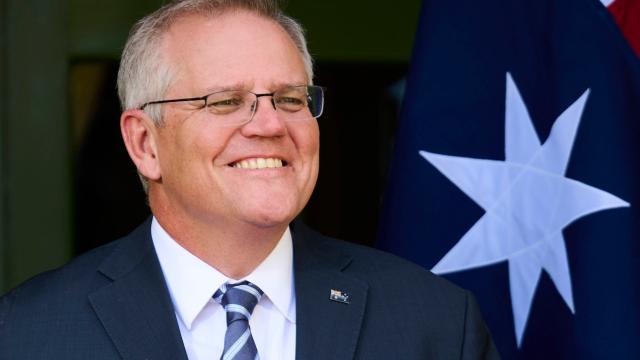Australia’s Prime Minister isn’t well-known for his technological prowess. He’s been involved in many a debate with ‘big tech’ over making them pay and asking them to implement absurd changes to their platform. But on Thursday, Scott Morrison said he wants people to stop “being cowards” online and has, whether deliberately or not, reignited the conversation around cracking down on anonymous social media accounts.
Strap in, you’re in for a ride.
“Cowards who go anonymously onto social media, and vilify people, and harass them, and bully them, and engage in defamatory statements – they need to be responsible for what they’re saying,” he said during a press conference.
“We’re responsible for the things that we say and that we do, but yet social media has become a coward’s palace where people can just go on there, not say who they are, destroy people’s lives, and say the most foul and offensive things to people. And do so with impunity.”
According to Morrison, people should have to identify who they are. (He’s essentially backing the call from his deputy Barnaby Joyce and our Attorney-General Michaelia Cash). But he’s placing the responsibility on the likes of Facebook.
“The companies, if they’re not going to say who they are, well they’re not a platform anymore, they’re a publisher and you know what the implications of that means,” he said.
The implications of that, my friends, is that a publisher is liable for what is said on their platform and therefore defamation law comes into play.
So What Does Morrison Want?
If you cast your mind back over the last 18 months or-so, Australia has had some pretty epic laws pass Parliament. We’ve had the Online Safety Act, which gives the eSafety Commissioner (among many, many other things) the ability to request social media sites takedown inappropriate content. There’s also the Media Bargaining Code that was aimed at getting tech giants to make up for Australian newspapers losing their traditional revenue model.
Earlier this year, the PM told me that although global tech giants are changing the world, his government cannot let them run it.
Now, Morrison is threatening more.
“People should be responsible for what they say … and the technology that enables it – and the lack of accountability that sits around it – is just not on,” he said.
“You can expect us to be leaning even further into this.”
He praised the laws I mentioned above, and reiterated Australia is “world-leading” on these issues. He said his government intends to set the pace. That pace, while not yet defined, could be in form of forcing those that use anonymous social media accounts to use their real name.
What About Account Verification?
I’ve been following this discussion for a while. About a year ago, Australian eSafety Commissioner Julie Inman-Grant rejected the practicality of a ‘know your customer’-type regime for social media companies to verify the identities of their users.
Yes, such a regime would put an end to anonymous social media accounts, but logistically it’s a mammoth task.
“It would be very challenging, I would think, for Facebook for example to re-identify — or identify — its 2.7 billion users,” she said. “How do they practically go back and do that and part of this has to do with how the internet is architected.”
While she admitted it was not impossible, she said it would create a range of other issues and that removing the ability for anonymity or to use a pseudonym is unlikely to deter cyberbullying and the like.
And forcing people to use their real names? There would be huge civil libertarian pushback, especially in the U.S..
He’s not making you change your name from Seymour Butz to your birth name just yet (there’s a whole other discussion to be had around the implications of forcing people to use a dead name, too), but he does want to hold big tech accountable for the actions of its users.
And there’s logic in asking people to stop being bullies or to stop spreading misinformation. But do I need to remind you of how long it took to address what was happening in your own house, Mr Prime Minister?
